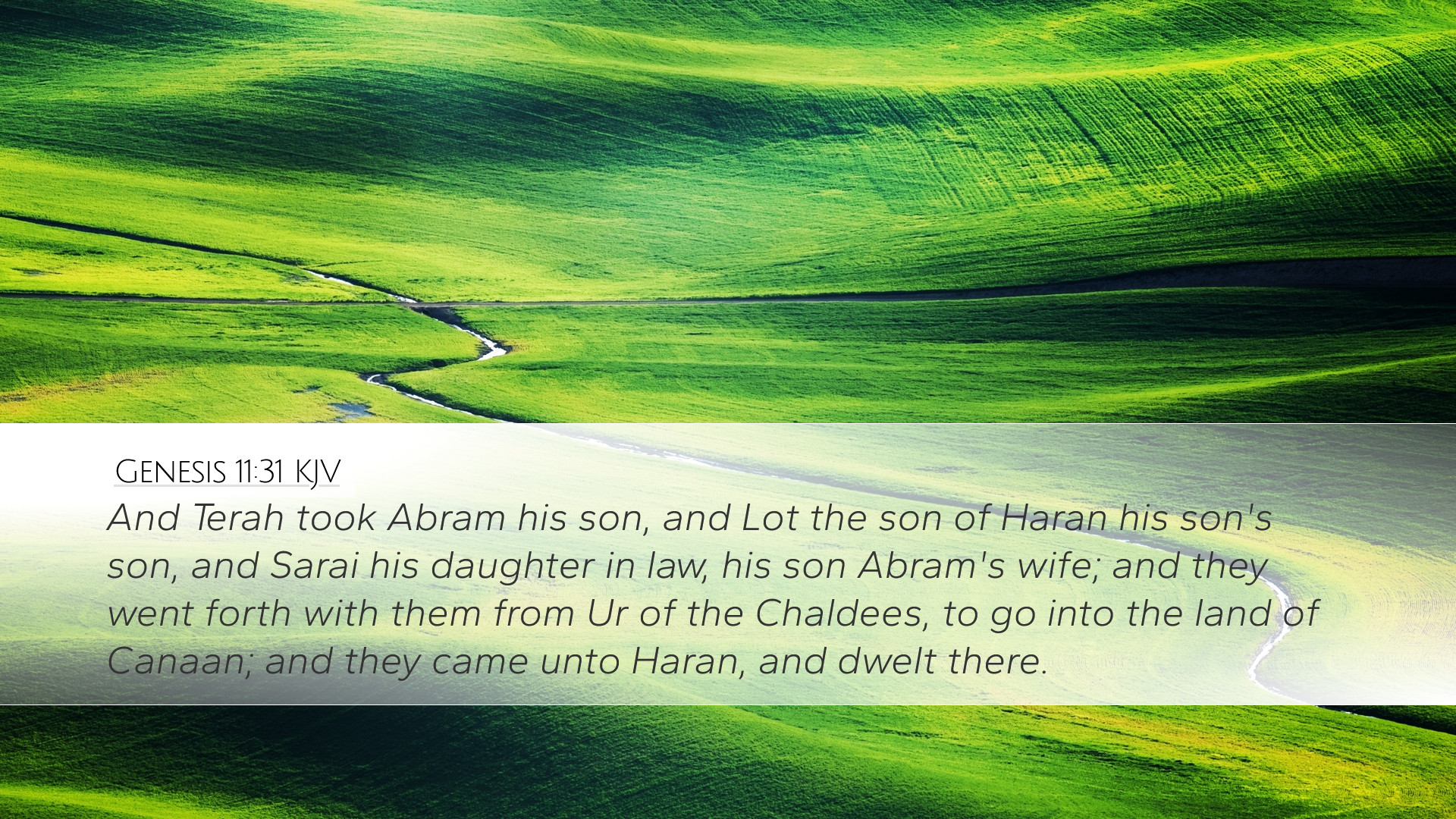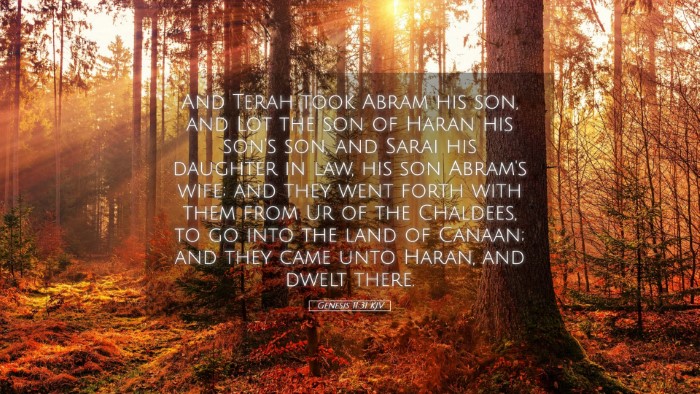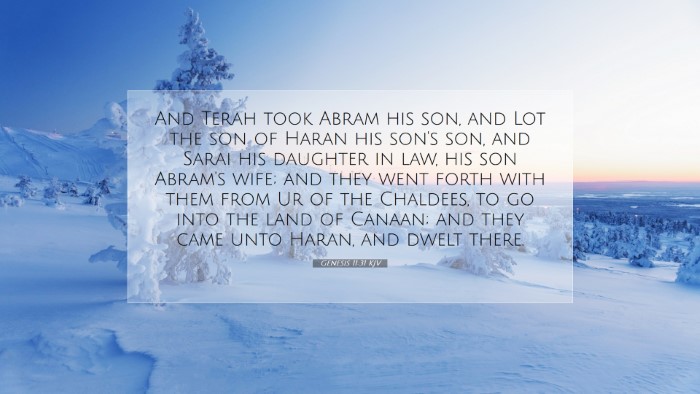Commentary on Genesis 11:31
Genesis 11:31 states, "And Terah took Abram his son, and Lot the son of Haran, his son’s son, and Sarai his daughter-in-law, his son Abram’s wife; and they went forth with them from Ur of the Chaldees, to go into the land of Canaan; and they came unto Haran, and dwelt there." This passage marks a pivotal moment in the narrative of the Abrahamic covenant and serves as a significant introduction to the figure of Abraham.
Contextual Background
The journey depicted in this verse reflects a transition from the life of Terah, the father of Abram, to that of Abram himself. Terah's decision to leave Ur of the Chaldees, a region historically recognized for its idol worship and cultural richness, signals a step towards the fulfillment of God's promise to Abraham and the establishment of a covenant people.
Insights from Commentators
-
Matthew Henry:
Henry emphasizes the providential hand of God in the movement of Terah's family. He notes that while the journey to Canaan begins with Terah, it is ultimately underscored by the divine plan that centers on Abraham. Henry asserts that this migration illustrates God's ability to work through human transitions and decisions, leading to His ultimate purpose.
-
Albert Barnes:
Barnes expounds on the significance of Terah’s actions, suggesting that, though Terah did not faithfully follow God's command (as there is no evidence that he received direct instruction), the family’s departure from Ur indicates a latent longing for a divine promise. He further explains the importance of Haran as a pause in the journey towards the more significant destination of Canaan, linking it to a broader theological theme of pilgrimage in faith.
-
Adam Clarke:
Clarke delves into the genealogical connections presented in this verse, emphasizing the familial ties among Terah, Abram, Lot, and Sarai. He points out that the departure from Ur reveals a relational dynamic that sets the stage for the covenantal narrative where family and faith would intersect. Moreover, he reflects on the significance of Sarai's inclusion, proposing that her legal status as Abram’s wife is crucial to understanding the genealogical lineage leading to Israel.
Theological Implications
The verse carries profound theological implications as it marks an essential juncture in God's redemptive history. The act of leaving Ur was not merely a geographical transition; it symbolized a movement away from idolatry and a step towards a relationship with the living God. This theme resonates throughout the biblical narrative, echoing the call to leave behind worldly affiliations and embrace a covenant relationship marked by faith and obedience.
Faith and Obedience
The obedience of Abram, which is implied in his family's departure from Ur, invites reflection on the nature of faith. As theologians, it challenges us to consider the depths of trust required to leave behind familiar comforts for the sake of divine calling. The narrative foreshadows the later explicit calls to Abraham, reinforcing the concept that obedience is foundational to any relationship with God.
Family and Community
The familial context within which this journey begins lays the groundwork for understanding biblical community. The Old Testament often highlights family as a central unit in God's plan, suggesting that the journey of faith is not just individual but communal. Pastors and theologians should note the importance of fostering biblical community where faith can be shared, cultivated, and passed from one generation to the next.
Conclusion
In summary, Genesis 11:31 serves not only as a transitional verse in the biblical narrative but also as a profound starting point for discussions on faith, obedience, and the nature of God's calling. Commentators such as Matthew Henry, Albert Barnes, and Adam Clarke provide layered insights that enrich our understanding of the text. As we explore this passage, we are reminded of the continual unfolding of God's redemptive plan through human history and the enduring significance of the covenant initiated with Abraham, which bears implications for all believers today.


